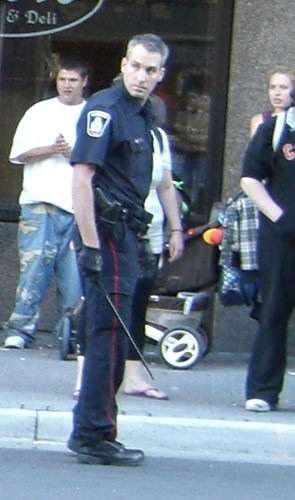An (Alas) Modest Proposal for Rethinking Typical Police Practice When it Comes to Killing Suspects on the Street
Inspired by recent stories blogged here at Reason from Bakersfield, Florida, New York, and Irvine Fullerton, California, (and those are just the four at the top of my mind) in which police attempts to apprehend people apparently guilty of only very minor crimes that don't involve any known harm to person or property wind up with the suspect's death.

Perhaps police should consider that if a suspect's only reasonable suspected crime is something very minor, not involving harm to people or property (until compounded by their behaving in a manner police don't like to see when approached or apprehended by police), as long as that behavior serves indicates no reasonable suspicion of intent or ability to harm in a serious fashion police or citizens (as long as the police are no longer actively engaging the citizen), then if the choice comes between standing down or imposing an instant death sentence, standing down might be the regrettable but in this instant least-bad option.
Most likely, the reason why the suspect is (fecklessly) resisting what you, the officers, are doing to him is not because he's guilty of mass murder or terror or a string of bank robberies for which they can't risk being apprehended.
Most likely, they are acting out of fear, panic, pride, and the innate human will to self-defense. That is, all the same motives that are leading you to beat them to death or hit them with a deadly weapon, that is, your car.
The modest suggestion is that perhaps letting a possible drunk or homeless nuisance or traffic scofflaw escape instant ticketing/arrest via standing back from them and seeing how they react for a moment is a, perhaps regrettable, better outcome than the death of a human being.


Show Comments (87)